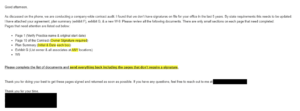In recent months, a concerning trend has emerged within the dental industry: insurance companies employing deceptive tactics to entice dental practices into direct contracting. This phenomenon has sparked significant concern among dental providers and practice managers, as it threatens their practice’s autonomy and operational integrity.
What is Direct Contracting?
Direct contracting refers to a formal agreement between Dental providers and insurance companies, where providers agree to offer services to the insurer’s members at agreed-upon rates. A direct contract is directly between the said insurance company and the provider. This is distinct from third-party agreements (TPA), where providers can work with an insurance company indirectly through a third entity, agreeing to be in-network but under the fee terms of the TPA. Understanding the differences between these two modes of operation is crucial for healthcare practices.
The Sneaky Tactics of Insurance Companies
Insurance companies have been found to use a variety of underhanded methods to trick practices into entering direct contracts. These methods include sending official-looking emails, faxes, and letters that employ coercive language and false ultimatums. These communications often threaten action or penalties if the practice does not comply by returning signed documents, misleadingly indicating they have no choice but to sign and return the requested documents. Little do they know that by doing so, they have entered into a direct contract. Most of the time, these requests from the insurance companies make no mention of a contract or even have an application for the provider to join.
The Consequences of Inadvertent Direct Contracting
Accidentally entering into a direct contract can have significant implications for a practice. It can lead to difficulties terminating the agreement, with processes extending up to 90 days or more, and may involve complex negotiations with the insurance company. Furthermore, these contracts may contain long-term obligations that are not in the practice’s best interest, potentially limiting their future contracting options. Many direct contracts have language that states that, when terming the contract, the provider will be blocked from picking up the contract through any shared network in the future. This means severe limitations for future negotiations and contracting.
Real-World Examples
Several practices have reported receiving such deceptive communications, with many inadvertently signing documents under the impression they were required to do so to maintain their operational status. These cases highlight the need for practices to critically assess any contract-related communications they receive from insurance companies.

How to Protect Your Practice
To safeguard against these deceptive practices, dental providers should:
✅ Thoroughly verify the authenticity of any communication suggesting changes to contract terms.
✅ Consult with professional advisors or legal counsel before signing any documents related to insurance contracts.
✅ Be wary of any communication that imposes undue pressure or uses coercive language.
Conclusion
The rise of deceptive contracting practices by insurance companies is a troubling development in the dental industry. It is essential for dental practices to remain vigilant and seek professional advice when navigating these issues to protect their interests and maintain the quality of care for their patients.
If you’ve encountered similar experiences or are seeking advice on how to navigate insurance company contracts, reach out for professional guidance. Sharing your experiences can also help raise awareness and protect other practices from falling into these traps. You can contact us here.
